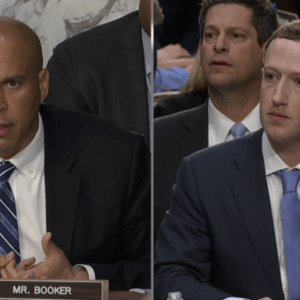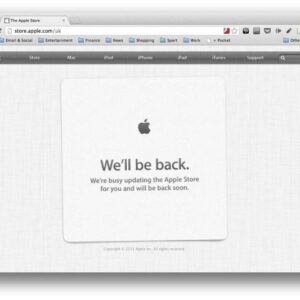Tim cook speaks up facebook privacy scandal – Tim Cook Speaks Up: Facebook’s Privacy Scandal – remember that explosive moment? It wasn’t just another tech spat; it was a full-blown clash over user data, privacy, and the very soul of the digital age. This wasn’t just about Cambridge Analytica; it was about a fundamental disagreement on how tech giants should handle our most personal information. Apple’s CEO, Tim Cook, didn’t just criticize; he launched a full-scale assault on Facebook’s data practices, sparking a debate that continues to resonate today.
This deep dive explores Cook’s public criticisms, comparing Apple’s approach to Facebook’s and examining the impact on public perception and the broader tech industry. We’ll uncover the key differences in their business models, dissect Cook’s rhetoric, and analyze the ripple effects of his outspoken stance. Get ready to unravel the complexities of this digital drama.
Tim Cook’s Public Statements Regarding Facebook’s Privacy Practices
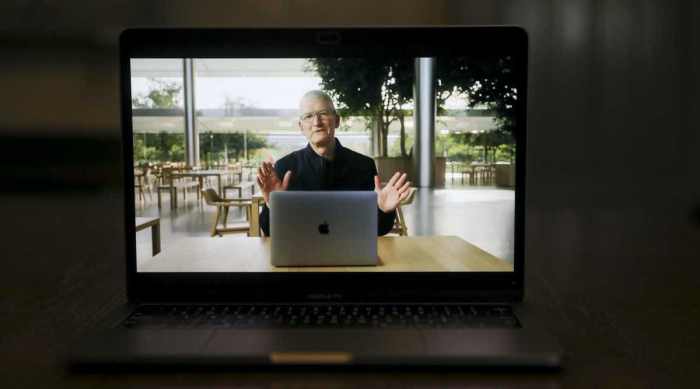
Source: indianexpress.com
Tim Cook’s criticism of Facebook’s privacy practices highlights a larger issue: the unchecked spread of misinformation online. This isn’t limited to Facebook; consider the disturbing reports of youtube kids suggesting conspiracy videos , exposing young children to potentially harmful content. Ultimately, Cook’s call for greater accountability underscores the urgent need for better safeguards across all digital platforms.
Since the Cambridge Analytica scandal erupted in 2018, Apple CEO Tim Cook hasn’t shied away from criticizing Facebook’s data handling practices. His public statements have been consistent, painting a picture of a company prioritizing profit over user privacy and advocating for stronger data protection regulations. This contrasts sharply with Facebook’s (now Meta’s) own public pronouncements, often emphasizing user choice and data security improvements.
Timeline of Tim Cook’s Public Criticisms of Facebook
Cook’s criticism hasn’t been a one-off event; it’s been a sustained campaign woven into various interviews and public appearances. His comments often leverage a moral high ground, positioning Apple as a champion of user privacy against Facebook’s perceived exploitative practices.
Examples of Cook’s Specific Criticisms
Cook’s criticisms haven’t been vague pronouncements. He’s directly targeted Facebook’s business model, arguing that it relies on the extensive collection and monetization of user data. He’s specifically pointed to the lack of transparency regarding data collection methods and the potential for misuse of personal information. He’s also voiced concerns about the lack of meaningful user control over their data. For instance, he has highlighted the difficulty users face in understanding and managing the vast amount of data Facebook collects and how it’s used.
Rhetoric Employed by Tim Cook
Cook consistently employs a measured yet firm tone. His vocabulary is carefully chosen, avoiding inflammatory language while still conveying a strong sense of disapproval. He frames the issue not just as a technological problem but as a moral one, emphasizing the ethical responsibility of tech companies towards their users. He often uses contrasting language, positioning Apple’s privacy-focused approach against Facebook’s data-driven model. This contrasts with Facebook’s responses, which often focus on technical details and user choice, downplaying ethical concerns.
Comparison of Cook’s Statements and Facebook’s Responses
The following table summarizes some key instances of Cook’s public statements and Facebook’s (or Meta’s) responses. Note that Facebook/Meta’s responses were often indirect, focusing on their own initiatives rather than directly addressing Cook’s specific criticisms.
| Date | Statement Excerpt | Speaker | Response (if any) |
|---|---|---|---|
| March 2018 (Post Cambridge Analytica) | “We believe privacy is a fundamental human right.” | Tim Cook | Facebook issued statements apologizing for the Cambridge Analytica scandal and promising improvements to data security. |
| October 2018 | “A business model that is based on collecting as much personal information as possible, selling it off, and making money from it is not something I think we should build our businesses around.” | Tim Cook | No direct response from Facebook. |
| Various Interviews (2019-2023) | Repeated emphasis on Apple’s commitment to user privacy and criticism of data-driven business models. | Tim Cook | Facebook/Meta continued to emphasize its investments in privacy tools and user controls. |
Apple’s Privacy Policies and Practices in Contrast to Facebook’s
Apple and Facebook represent diametrically opposed philosophies regarding user data privacy. While Facebook’s business model thrives on extensive data collection and targeted advertising, Apple prioritizes user privacy as a core value, shaping its product design and business strategy accordingly. This fundamental difference drives contrasting approaches to data handling and user experience.
Apple’s approach to privacy is deeply ingrained in its corporate culture and product design. Unlike Facebook, which monetizes user data through targeted advertising, Apple’s primary revenue stream comes from hardware sales and app store commissions. This structural difference significantly impacts their data practices. Apple’s commitment to privacy isn’t just a marketing slogan; it’s a key differentiator that fuels customer loyalty.
Apple’s Privacy-Focused Features and Policies
Apple actively implements various features and policies designed to safeguard user privacy. Differential Privacy, for example, allows Apple to gather aggregate data about app usage and device performance without compromising individual user identities. This technology enables Apple to improve its products and services while preserving user anonymity. On-device processing of data, where possible, minimizes the amount of sensitive information transmitted to Apple’s servers. Features like App Tracking Transparency (ATT) give users granular control over which apps can track their activity across other apps and websites, significantly reducing the ability of third-party trackers to build detailed profiles. Furthermore, Apple’s commitment to end-to-end encryption for iMessage and FaceTime protects the confidentiality of user communications.
Instances of Apple’s Public Defense of its Privacy Stance
Tim Cook has been a vocal critic of Facebook’s data practices, publicly challenging their business model and advocating for stronger privacy regulations. His consistent messaging positions Apple as a champion of user privacy in the tech industry. Apple’s public disputes with Facebook over data collection practices, particularly regarding ATT, highlight the stark contrast in their approaches. These instances showcase Apple’s willingness to stand up for its principles, even when facing powerful competitors.
Key Differences in Apple and Facebook’s Business Models and Their Impact on Data Privacy
The contrasting business models of Apple and Facebook directly influence their data privacy approaches.
- Revenue Model: Apple primarily generates revenue from hardware sales and app store commissions, minimizing reliance on extensive user data collection for monetization. Facebook, on the other hand, relies heavily on targeted advertising, requiring extensive data collection and profiling of its users.
- Data Collection Practices: Apple collects minimal user data, focusing on improving its products and services, while maintaining user privacy. Facebook collects vast amounts of user data to create detailed user profiles for targeted advertising and other purposes.
- User Control: Apple provides users with significant control over their data through features like ATT and on-device processing. Facebook offers less granular control, with users often lacking transparency into how their data is used and shared.
- Transparency: Apple is generally more transparent about its data collection practices and privacy policies. Facebook’s data practices have been subject to considerable scrutiny and criticism regarding transparency and user consent.
The Impact of Cook’s Statements on Public Perception of Facebook
Tim Cook’s public criticisms of Facebook’s privacy practices weren’t just corporate sparring; they ignited a significant shift in public perception, amplifying existing concerns and potentially influencing regulatory actions. His pronouncements, delivered with Apple’s considerable brand authority, resonated deeply with a public increasingly wary of data collection and online surveillance.
Cook’s statements leveraged Apple’s established reputation for privacy-focused products and contrasted sharply with Facebook’s then-dominant, data-centric business model. This contrast provided a powerful narrative, framing the debate not merely as a technical discussion but as a moral one, pitting user privacy against corporate profit. The impact wasn’t immediate but unfolded gradually, accumulating over time through media coverage and shifts in public opinion.
Public Opinion Shifts Following Cook’s Statements
Several factors contributed to the demonstrable changes in public perception following Cook’s pronouncements. Increased media coverage, featuring Cook’s criticisms prominently, kept the issue of Facebook’s privacy practices in the public eye. This sustained attention, coupled with a growing awareness of data breaches and misuse, fueled public skepticism towards Facebook. While precise quantification of opinion shifts is difficult due to the complex interplay of factors, anecdotal evidence from news reports and social media discussions reveals a clear trend towards increased public scrutiny of Facebook’s practices. For example, a spike in searches related to “Facebook privacy concerns” following Cook’s statements, as documented by Google Trends, suggests heightened public interest and apprehension. Moreover, various polls conducted around the time of Cook’s statements (though pinpointing direct causal links remains challenging) indicated a decline in public trust in Facebook, coinciding with increased support for stricter data privacy regulations.
The Role of Cook’s Credibility and Apple’s Reputation
Tim Cook’s credibility played a crucial role in shaping public response. As CEO of a highly respected technology company known for its commitment to user privacy, his words carried significant weight. Apple’s brand image, built on a foundation of user trust and data security, lent credibility to Cook’s accusations. This contrasted starkly with Facebook’s image, which at the time was increasingly associated with data scandals and questionable privacy practices. The public was more inclined to believe Cook’s critique because it aligned with Apple’s established brand narrative and because the criticism came from a seemingly unbiased, and powerful, competitor rather than a smaller, less-known activist group.
Cook’s Statements and Increased Regulatory Scrutiny of Facebook
Cook’s public statements, while not directly causing regulatory action, undoubtedly contributed to the growing pressure on Facebook to address its privacy practices. His criticisms provided ammunition for regulators already concerned about Facebook’s power and data handling practices. The increased public awareness and negative perception fueled by Cook’s pronouncements created a more receptive environment for regulatory intervention. This heightened scrutiny led to increased investigations and ultimately contributed to the implementation of stricter data privacy regulations globally, including GDPR in Europe and CCPA in California. The confluence of Cook’s public statements, increased public awareness, and pre-existing regulatory concerns created a perfect storm that forced Facebook to confront its privacy issues more seriously.
The Broader Context of the Tech Industry Privacy Debate
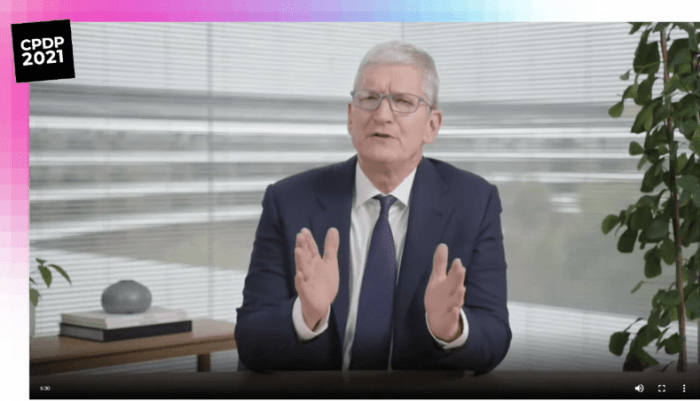
Source: cyberthreat.id
Tim Cook’s outspoken criticism of Facebook’s privacy practices wasn’t a lone wolf howl in the tech wilderness. It was, rather, a significant contribution to a long-simmering and increasingly urgent conversation about data privacy in the digital age. His statements highlighted a growing chasm between companies prioritizing user data monetization and those prioritizing user control and security.
The debate isn’t just about individual companies; it’s a fundamental clash of values concerning the relationship between technology, users, and power. It’s about who controls our data, how it’s used, and what safeguards are in place to protect individuals from misuse or exploitation. Cook’s stance, emphasizing user privacy as a core value, positioned Apple as a counterpoint to the data-centric models of many other tech giants.
Prominent Voices in the Privacy Debate
Several other prominent figures and companies have echoed Cook’s concerns, albeit with varying degrees of intensity and approach. Edward Snowden’s revelations about government surveillance programs significantly amplified public awareness of privacy vulnerabilities. Elon Musk, despite his own company’s data collection practices, has voiced concerns about the potential dangers of unchecked AI and data misuse. Furthermore, organizations like the Electronic Frontier Foundation (EFF) have consistently advocated for stronger privacy protections and greater transparency in data handling. These diverse voices, from tech CEOs to whistleblowers to advocacy groups, highlight the broad-based nature of the privacy debate.
Comparative Approaches to User Privacy
Tech companies employ diverse approaches to user privacy, ranging from highly restrictive data collection to seemingly unrestricted data harvesting. While some companies, like Apple, prioritize user privacy by design, others rely on intricate consent mechanisms and data minimization strategies. However, the effectiveness and transparency of these approaches often remain contentious. The inherent complexities of data collection, storage, and analysis make it difficult to achieve a universally accepted standard of privacy.
Tech Company Privacy Approaches
| Company | Approach to User Privacy | Policy Examples |
|---|---|---|
| Apple | Privacy-centric design; minimal data collection; strong encryption | Differential Privacy, on-device processing |
| Data-driven; extensive data collection; granular user controls | Targeted advertising, data minimization initiatives | |
| Facebook (Meta) | Data-centric; extensive data collection; evolving privacy policies | Targeted advertising, user data sharing with third-party apps (past practices) |
| Microsoft | Balanced approach; data collection with user controls; emphasis on security | End-to-end encryption options, data breach notification policies |
Visual Representation of the Data Privacy Landscape: Tim Cook Speaks Up Facebook Privacy Scandal
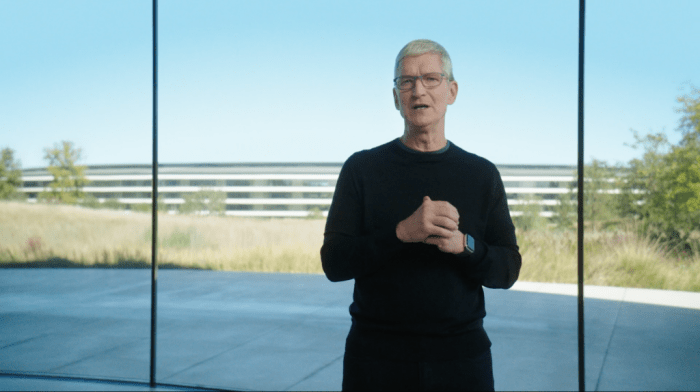
Source: trustedreviews.com
Understanding the varying approaches to data privacy across major tech companies can be challenging. A clear visual representation, however, can significantly simplify this complex issue, making it accessible to a broader audience. Imagine a comparative chart, perhaps a radar chart or a matrix, to effectively showcase this information.
This visual representation would effectively communicate the nuances of data privacy practices across different tech giants. By comparing key data points across companies, it would highlight both similarities and crucial differences in their approaches, allowing for a more nuanced understanding of the overall landscape.
Data Points and Their Significance
The chart would use several key data points to illustrate the privacy approaches of various tech companies. These data points would be carefully selected to represent crucial aspects of a company’s privacy stance. For example, one axis could represent the transparency of a company’s data collection practices, measured by the clarity and accessibility of its privacy policy. A higher score would indicate greater transparency, while a lower score would signify more opaque practices. Another axis could measure the extent of data minimization, reflecting the company’s commitment to collecting only necessary data. A third axis might focus on data security measures, reflecting the strength of the company’s security protocols and their track record in preventing data breaches. Finally, a fourth axis could represent user control over data, illustrating the extent to which users can access, modify, or delete their data.
Chart Interpretation and Audience Engagement, Tim cook speaks up facebook privacy scandal
This multi-axis chart would allow for a quick comparison of companies. A company scoring high across all axes would represent a strong commitment to user privacy. Conversely, a company scoring low across several axes would signal a potentially more problematic approach. Using color-coding or visual cues, the chart could highlight companies with particularly strong or weak points, making it easier for the audience to identify trends and make informed decisions. The inclusion of short textual descriptions alongside each company’s data points could further enhance understanding, providing context and specific examples of their policies and practices. For example, a note could highlight a company’s robust encryption methods or a particular instance of a data breach. This visual tool could be used in educational settings, media reports, and even in public awareness campaigns to effectively communicate the complexities of data privacy to a general audience, empowering individuals to make more informed choices about the technology they use.
Last Recap
The Tim Cook-Facebook privacy showdown wasn’t just a PR battle; it was a pivotal moment that reshaped the conversation around data privacy. Cook’s bold statements forced a reckoning, pushing Facebook (and the entire tech world) to confront its practices and consider the ethical implications of data collection. While the dust has settled somewhat, the questions Cook raised remain crucial, underscoring the ongoing need for transparency and accountability in the digital sphere. His actions served as a wake-up call, reminding us all to be more mindful of where our data goes and who has access to it.
